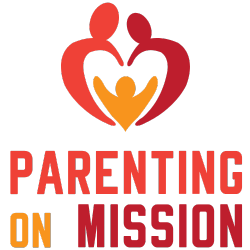Parenting Masterclass
OBJECTIVES
The objective of the workshop is to provide parents with practical guidelines and strategies to effectively navigate the various stages of parenting. With the guidelines and strategies provided in the workshop parents will be more competent and confident in their parenting skills and as a result there will be an overall positive impact on society through well rounded and grounded next generation.
WHO SHOULD ATTEND
- Those considering becoming parents
- Biological parents of children 0-25+
- Nonbiological parents and caregivers of children
PREREQUISITES
- Considering having children
- Already have children
ITEMS TO BRING
- Open Mind

The Pool of Life Community Church
Date: 8/29 - 8/30
Time: 6:30-9:30 (Day 1), 8:30-5:00 (Day 2)
Location: 17111 Kieth Harrow Blvd, Houston, TX 77084
Cost: $50 per Person
Special Rates: $45 per person for 2 or more registered at once, $40 per person up to 2 weeks before
Instructors: Oscar & Suni Combs
MATERIALS INCLUDED
- Copy of Workshop Materials
- Parenting Skills Assessment
- Parenting Plan Worksheet

KEY FEATURES
- Real Life Experiences
- Practical Parenting Guidelines
- Group Sessions
- Questions and Answers
- Course Materials and Resources
- Parenting Plan Development
- Certificate of Attendance
LEARNING OUTCOMES
Module 1 – Parenting Principles
- Explain and Illustrate the Six Parenting Phases
- Explain the Role, Responsibilities & Characteristics of Parent(s)
- Explain the Role, Responsibilities & Characteristics of Children
- Demonstrate Parenting Models
- Developing a Parenting Vision and Mission
- Illustrate the Parenting Process
- Explain the Development Phases of Children (Physical and Emotional)
- Review Adverse Childhood Experiences (ACEs)
- Explain Breaking Poor Parenting Cycles
- Illustrate Importance of Safe Environment
- Explain Importance of United Parenting
- Discuss Discipleship and Discipline
- Explain Importance of Your Child Knowing You
- Illustrate Importance of Not Letting Them Make Their Own Mistakes
Module 2 – Preparing Phase
- Explain Preparing Phase
- Discuss Introduction of Godly Fundamentals
- Discuss Learning Your Child(ren)
- Explain Importance of Core Family Nucleus
- Explain Establishing Household Structure
- Discuss Importance of Establishing Responsibility and Accountability
- Classify Roles of Other Family Members
- Discuss Allowing Communication of Feelings and Thoughts
- Explain Importance of Teaching Conflict Resolution, Cooperation and Collaboration
- Explain Teaching Making Good Decisions
- Explain Intrinsic Motivation
- Explaining the Value and to Earn Money
Module 3 – Planting Phase
- Understand the importance of nurturing and offering opportunities for children to develop a relationship with God
- Explain importance of children having dreams, goals and a plan
- Understand the importance investing early in your child(ren) growth and development
- Understand the importance of teaching communication skills
- Illustrate how foundational teachings and values are reinforced and expanded
- Discuss the importance of spiritual guidance and its impact on a child’s moral and ethical framework
- Discuss how children can understand that their achievements are directly tied to their work and not just wishful thinking
- Illustrate how fostering an environment that promotes the child’s interests and hobbies supports overall growth
- Explain the significance of teaching children to set personal goals and work towards them with purpose and persistence
- Discuss how to cultivate a love for learning and intrinsic motivation within a child(ren)
- Illustrate how to encourage children to express their thoughts and feelings effectively
- Discuss how to engage children in exercises that promote problem-solving, critical thinking, and analysis
- Review the connection between emotional well-being and physical health and their roles in overall development
- Classify how to encourage the development of positive and supportive relationships with siblings, cousins, peers, and family
Module 4 – Managing Phase
- Explain the importance of managing the transition from childhood to early adolescence, guiding children towards increased independence
- Discuss how parents should engage in active life lessons and demonstrations of leadership to guide their children
- Illustrate how parents can help children navigate critical life choices in a thoughtful and responsible manner
- Assist children in narrowing down educational and career pathways based on their interests, talents, and abilities
- Explain how teaching children the importance of healthy relationship boundaries benefits their interactions with peers and adults
- Discuss the need for open and respectful conversations about the physical and emotional changes that accompany puberty
- Illustrate how to initiate conversations about challenging topics such as smoking, drugs, alcohol, and sex, while providing guidance on healthy choices
Promote strategies for teaching children to discern and select peers who positively influence their development - Discuss how to help children understand the value of respecting authority and societal rules while navigating their adolescence
- Classify ways to equip children with strategies for resisting negative peer pressures
Module 5 – Watering Phase
- Explain the importance of maintenance and continual support as children move into late adolescence
Illustrate how to allow children to take responsibility for their actions while continuing to provide necessary guidance - Discuss how to support children in advancing their academic, athletic, or personal skills
- Classify how to encourage children to explore career decisions, including college, trade schools, internships, and vocational training
- Explain how to teach children about budgeting, saving, and managing money effectively
- Illustrate how to ensure that children feel comfortable approaching their parents with any concerns
- Discuss how to address stress, anxiety, and mental health challenges, helping children cope constructively
- Discuss the need for ongoing spiritual development as children transition into adulthood
- Explain the importance of staying connected and being a trusted advisor, offering support without being overly controlling
- Teach children to build resilience by developing strategies for overcoming setbacks and challenges
Module 6 – Harvesting Phase
- Explain how parents can guide children in making independent life decisions as they approach adulthood
- Illustrate how to allow children to experience the world independently while remaining a supportive presence
- Provide guidance to help children navigate adult responsibilities without solving all their problems for them
- Discuss how to reinforce the child’s spiritual journey and encourage them to seek God’s guidance in their decisions
- Discuss how parents can help children face life’s challenges (e.g., relationships, career, finances) while maintaining close family ties
- Explain how to help children make informed decisions regarding their future career and educational choices
- Encourage children to develop a strong sense of personal values and ethical decision-making
- Explain how to ensure children feel safe sharing their struggles, successes, and questions with their parents
- Classify how to guide children in maintaining healthy relationships with family members as they transition into independent adulthood
Module 7 – Preserving Phase
- Explain the continued role of parents as their children enter adulthood and beyond
- Discuss how to encourage adult children to take responsibility for their own decisions while still offering guidance when necessary
- Provide ongoing support to adult children without criticizing or overstepping their autonomy
- Explain how to encourage adult children to pursue continuous education and personal development
- Discuss how to help adult children in their journey to become effective parents themselves
- Illustrate the eventual role reversal, where parents may need to care for their aging parents, and how to prepare children for this shift
- Discuss how to teach children the importance of preserving family traditions, history, and values
- Encourage adult children to seek support when necessary and prioritize their mental and emotional well-being
- Explain how to maintain strong, positive relationships with adult children and ensure family bonds remain intact
- Discuss how to navigate family dynamics and challenges that come with aging and changes in the family structure
Phone: 713-575-2895
Email: [email protected]
©2025. Parenting on Mission. All Rights Reserved.

